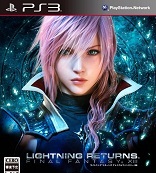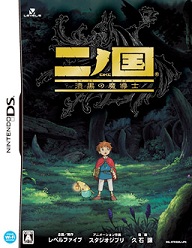Persona 4: The Golden
PlayStation Vita
Reviewed: 2/6/2013
Which segues nicely into the first thing great about Persona 4: The Golden – there’s a ton of stuff to do, and almost all of it affects gameplay. While P4G offers plenty of strategic turn-based combat and the in-depth monster fusion infamous to the Persona series; P4G builds upon these for a fantastic RPG experience.
P4G‘s Social Link system takes center stage. The goal of the Social Link system is to connect with the other people and develop friendships. These friendships level up by choosing the right thing to say or do during the time the protagonist spends with the Social Link. Social Links are divided into Arcana, which represent the struggles a particular Social Link is trying to overcome. Leveling up Social Links allows access to more experience points when fusing Persona tied to that Arcana. If the Social Link is with another party member, that party member will receive a benefit in combat with each level; such as surviving a fatal blow or gaining a new ability. On the flip side, the player can completely forgo this aspect of the game and spend their time doing odd jobs, fishing, or making girls cry.
The bonus experience allows fused Persona to level up instantly upon fusion, which opens up better skills in combat. Access to better skills for both fusion monsters and teammates means ending combat sooner, keeping the party alive and earning Shuffle bonuses. Shuffle bonuses show up more often when the party does well in combat, and can give anything from extra gold, experience, or Persona to permanent stat increases for the main character’s equipped Persona. By equipping a corresponding Persona when talking to a Social Link, the Social Link levels up quicker. These systems roll into each other fantastically, taking what could have been lackluster elements such as dungeon grinding and excess dialogue and rewarding the player for doing it correctly.
Because if the player does anything incorrectly, P4G will punish the player immensely. Any combat the player is unprepared for can potentially wipe the party out in a turn or two. Most enemies are weak to some type of attack and when this weakness is exploited, the character gains another turn to strike again. Each party member has a weakness the enemy can exploit in the same way. This is a little different for the main character, who can fuse and store several Personas, though only one is active at any time. The protagonist’s Persona can be switched once per round. It is entirely possible to have the protagonist become a walking god among enemies and something capable of being one-shotted in the same round. Those Shuffle bonuses mentioned earlier also contain penalties if the player makes poor choices. The bonuses and penalties are visible right away, but some of the penalties allow the player more draws from the offered hand. Drawing all cards from the hand guarantees another shuffle bonus after the next round of combat. Social Links can reverse if you’re a dick to NPCs – though acting that way has serious humor and cruelty potential. Like making girls cry. The worst offender for punishing players lies in the plot – at one point choosing the wrong answers will net players the Bad ending. It’s very easy to make the wrong choices, as the right choices are not very clear.
Daunting as this all may sound, P4G goes a long way to make accommodate the player. For starters, there are five difficulty levels to choose from in the beginning: Two easy modes, normal mode, and two hard modes. On normal mode and below, dying in battle will give the player the choice to restart at the beginning of the dungeon floor currently being explored. Social Links can’t be broken by letting too much time pass; though the player can muck them up by being a jerk. The game is menu-driven, including the overworld; but the player can fast travel at any time by pressing the square button and choosing a location. This feature is also available in dungeons so long as the stairs have been found. Persona fusion is simple – players can either go about it by randomly fusing or check the list of available fusions. A Persona’s inherited skills are chosen by the player. Save points are frequent and the game will interrupt the story and ask the player to save occasionally during longer cutscenes. You can fast forward through dialogue; or if you’ve already witnessed the scene, fast-forward through the whole thing. And there’s more. P4G is extremely friendly to the player on its normal setting. As different difficulty settings are chosen, these bonuses go away or increase.
Friendliness is part of the game’s central theme as well. The player must find the truth about the murders, and finding the truth will be hammered into the player at any given opportunity. Even the game’s excellent soundtrack sings about finding the truth in battle. Though the search for the truth is omnipresent, the protagonist’s friends will often drop by, hang out, and generally make the game more enjoyable. Characterization is great when dealing with the main plot. Characterization becomes truly excellent when the extra Social Links, events, and other extra choices come into play. You will truly get to know the party inside and out if you accomplish even half of the available events. The downside is the main character will not receive much in the way of characterization, as he is a vessel for the player’s thoughts. Even then he still receives more growth than any other silent protagonist in the RPG genre. In one, pivotal scene, the player is given the choice to respond to the party’s complaints. If done correctly, the game will continue beyond that point. However, the result is seeing the hero – a well-adjusted, in-control team leader; lose his cool for a moment. It really resonates with both the characters in the game and the player.
All of this characterization is helped along by a truly outstanding localization. I haven’t laughed this much with a game in a long time. I’ve laughed at plenty of games, but it’s a true rarity to feel as if I am laughing alongside the game. The voices match characters perfectly. Chie’s feisty adorableness combined with Yukiko’s calm and collected manner of speaking work very well. Yosuke is both suitably a teenager and highly annoying yet well within his role. Teddie is also a fantastic character to listen to. Really, everyone does a terrific job of bringing their character to life. The voice actors even manage to lessen the awkwardness of using Japanese honorifics. This is a small feat unto itself.
The plot centers around the protagonist arriving in the rural town of Inaba to live with his uncle and cousin for a year. Within a few days of arriving, a couple of the townsfolk are murdered. As the police investigate the murders, the protagonist and his friends find out the murders are prophesied by The Midnight Channel, a local urban legend with roots in the supernatural. The protagonist and his friends resolve to find the truth behind the murders. The player actually plays through the calendar year the protagonist is living in Inaba. The plot initially falls into a pattern of determining who is next to be murdered, rescuing the person, and then investigating any leads before the next victim is identified, yet it’s all done superbly and with a lot of foresight. The game wants you to search for the truth and the game will reward players who are able to find it with an impressive and emotional journey.
The graphics are very good, even as upgraded PS2 visuals. The in-game faces look a little odd when viewed up close, but everything else in the game is very bright and uses the Vita’s color palette and high resolution beautifully. The game is terrifically shiny which maintains P4G’s upbeat feel. The soundtrack is excellent. The music stands out and most pieces are instantly recognizable. I’ve been listening the soundtrack a lot lately. It’s truly remarkable.
There are also a ton of extras available. Playing through the game will unlock cutscenes, music, artwork, a quiz game and trailers in a separate section of the main menu called TV listings. Head there around midnight for another bonus. The best extra is a series of courses which give an introduction to Jungian psychology – the driving force behind the Persona series.
P4G also has two limited internet features. One of which is the ability to request help in dungeons. Sending out an SOS signal allows other players to respond by cheering you on. This means at the beginning of the next fight all party members will receive a small boost to their HP and SP based on responses from other players. It’s a neat system, but ultimately becomes useless quickly. When the game was first released there were tons of answers to SOS signals. Within a month this trickled down to almost nothing. Many players had beaten the game and moved on – a shame due to the game’s incredible replay value.
The second online feature is infinitely more useful. The game tracks how a player decides to spend his time. The top decisions are aggregated, and any player can find out what the majority of people did that day. It’s very useful as the feature gives a heads up on what Social Link is available that day, or what jobs can be done. It works as a great reminder. I made use of the feature all the time to help decide what to do next.
The game has four distinct endings and a few bonus bosses on top of everything else. While the main bonus dungeon and boss is more of a test of patience than anything that really adds to the game, the rest of the extra in-game events are pretty good. The different answers the player can give to Social Links, or choosing which friend/lover to hang out with during the holidays increase the replay value. Keeping certain items, stats and cash for the next playthrough also helps immensely. There is a ton of stuff to do and no way to see it all in one game.
The Vita version also has trophies which unlock upon completing plot event or gameplay. Most of these are easily accomplished; though I would refrain from looking up the trophy names online as some trophies do contain huge spoilers.
The complaints I have with P4G are very, very few. Some of the homophobic comments displayed by a certain character get old real quick. The bonus dungeon was a drag and cannot be skipped once accessed. Some of the lesser boss fights offered little challenge. But these are literally the only three things I can find wrong with the game. It’s outstanding in every other regard.
Persona 4: The Golden is almost a perfect game. I cannot recommend it enough.
-Russ Ritchey
| Score Breakdown | ||
| Overall Excellent Out of 10 See our Review Criteria |
Gameplay | Excellent |
| Story | Excellent | |
| Graphics | Excellent | |
| Sound/Music | Legendary | |
| Replay Value | Excellent | |
| The Verdict: Excellent | ||











